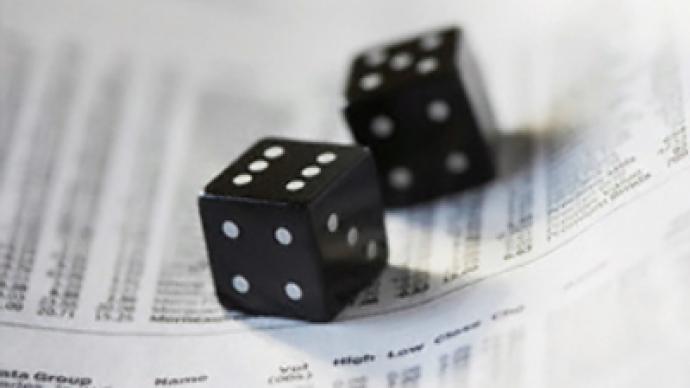No ordinary job! - investment analysts in Russia

Business pages are invariably full of comment from analysts, but much of the business interested public remains in the dark about what they do and the role they play.
Business RT spoke with Otkritie FC’s Head of Research, Vladimir Savov, and Chief Economist, Danila Levchenko, about what analysts do, how they do it, what issues they face, and how being an analyst in Russia can differ from being an analyst globally. The clear message was that in addition to being able to understand the complexity of modern finances, economic theory, and companies, being able to work with clients is a key part of being an analyst.
RT: What does an analyst do?
VS: " The job of equity research analysts is about preparing reports, including macroeconomic ones, one the base of which certain investment decisions are made. After that, our job as analysts is to convince the client (usually an investment fund) to take certain actions in the financial market, for example, buy or sell certain securities."
RT: How do you convince a client to adopt your investment proposals?
VS: "In fact, this is a complicated process since it involves lots of people: analysts, salespeople, and traders who operate directly in the market. So, it is essential that the client is satisfied by all parts involved. Otherwise, if analysts are the only part that does the job well, the client can just take our idea and implement it in his own, without our company's help. And since we don’t charge for ideas, we may end up in a situation where we work for free."
RT: So there is considerable risk with your work?
DL: "Certainly. This business is fairly competition-intensive, so to occupy the right place in the market we have to make sure all components work flawlessly."
RT: What do you think is most important in an analyst's work?
VS: "The key factor is being able to sell an idea, which calls for great presentation skills, right down to correct word choice. That's why an investment bank analyst should be an actor to a certain extent; he should be a public figure. He should really enjoy working with customers and mass media. That’s why it is called “sell-side” analyst."
RT: Sell-side?
VS: “In general, analysts are divided in two groups: buy-side and sell-side. Buy-side analysts usually work for investment funds; they only report their conclusions to their managers. Buy-side analysts buy ideas, while sell-side ones sell them. Buy-side ones are funds, hedge funds, mutual funds, and professional and institutional investors. On the sell-side are we, the investment banks that sell those ideas.”
RT: Are there any other fundamental differences between buy-side and sell-side analysts?
VS: “While essentially, buy-side and sell-side analysts do the same work of analyzing markets and business, they are usually different in their mentalities and characters. If we see a person who is well-versed in the subject and possesses the requisite financial knowledge but is an introvert, he or she will face a more challeningin task becoming a sell-side analyst. After all, when it comes recommending investment ideas, such qualities as engagement and desire to communicate are the priorities.”
RT: What’s more important for being an analyst: logics or intuition?
VS: “As a rule, intuition is a result of rich experience. I think, your professional intuition comes with time. Personally, I’m still working on my self improvement. Before this job I got an MBA degree, but when I came to work I realized that theory and practice differ a lot.”
RT: Is an MBA a must?
VS: “MBA isn’t a must, but it is useful. It gives you a general picture of main business processes, finances, marketing, for example. It’s a rather good starting point, which to a large extent answers on HOW instead of WHAT.”
RT: What do you like most of all about being an analyst? What lead you to become one?
DL: “First of all, it’s a possibility to think independently.”
VS: “Absolutely agree. To analyze and work independently. The research manager sets a task in general, but the analyst looks for the right solution on his own.”
RT: What’s so unique about being an analyst, to your mind?
DL: “Being an analyst gives you a real opportunity to make a choice. A person in this position has a general picture of what’s going on in an economy, in various sectors and companies. After building a few years of research experience, he or she is usually ready to move to the next level, which is to market the research product and communicate directly with potential investors. Alternatively, the analyst may decide to move to the “buy side” i.e. become a client of sell-side analyst himself, and use his prior experience to better judge the ideas that the “sell-side” is giving him. A third option could be to move to corporate finance, and use the sector knowledge and contacts to work on M&A transactions, equity or debt issuance, and so on.”
VS: “As for me, one day I just realized that I like to communicate with clients, and hence decided to continue my career as sell-side analyst. I’ve been working for ten years in this capacity already, but the last several years the bulk of my work is to talk to our clients, the investment funds. The downside of this is that if I want to switch my career now, it could be too late, because I have become a relatively narrow specialist in the Russian stock market.”
RT: In your opinion, does being an analyst in Russia differ from being one abroad?
VS.: “Naturally, the culture of work is different. In the West, a model of business support is usually more effective. Their infrastructure is more developed, because hundreds, millions and billions of dollars have been invested in it. In Russia, the profession of an analyst has become popular only in recent years, therefore young Russian companies as Otkritie, for example, have to invent their own processes and products, or attract talented people who have done this elsewhere and can transfer their skills. It takes more time and requires investment. On the other hand, it takes less time to take decisions in Russian companies, as their hierarchy is comparatively small.”
RT: Being an analyst, do you read your colleagues’ analyses and how much do you trust their research?
VS: “I try not to read others’ analyses at all. A different analysis and forecast automatically puts you in a certain frame and forces you to doubt your own analyses, and breeds ideas like “Look, I have not even thought about this.”
DL: “Neither do I, as I prefer to rely on my own opinion.”
RT: Does being an analyst help you in everyday life?
VS: “Sure, it has an affect on my life, but I don’t feel it that much. In general, I tend to take a break from work. But, actually, my profession has helped me in my private life: I got acquainted with my future wife. She was also an analyst at the time, and we met at a conference. Besides, practically all my friends are also analysts. In general, all analysts know each other. It’s like belonging to the same club.”
RT: Do you manage to keep work and life balance being an analyst?
VS: “It’s hard, but I do my best. I have two children, and, of course, I’d like to spend more time with them.”
DL: “As a rule, we work 12 hours a day, though my contract says that my working day starts at 9 a.m. and ends at 6 p.m. Besides, we can work from home. We have dead lines, and after all it’s up to you, it depends how well organized you are. You can leave even at 3 p.m., but, unfortunately, it never happens. Traders work less: their working hours are linked to markets: when markets are open and close.”













